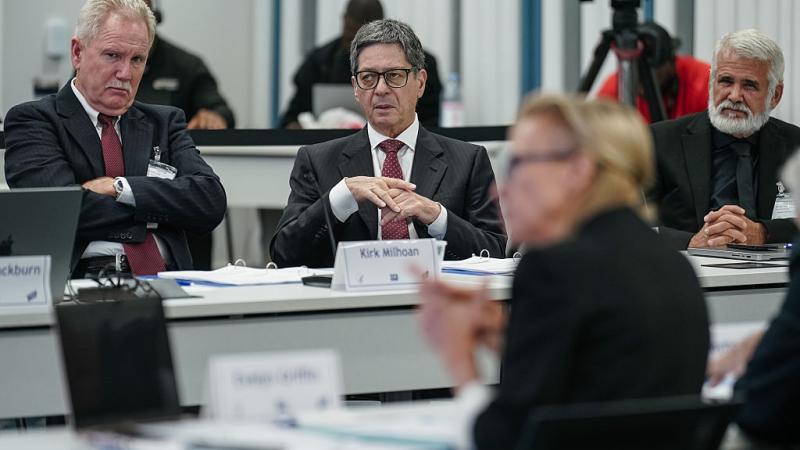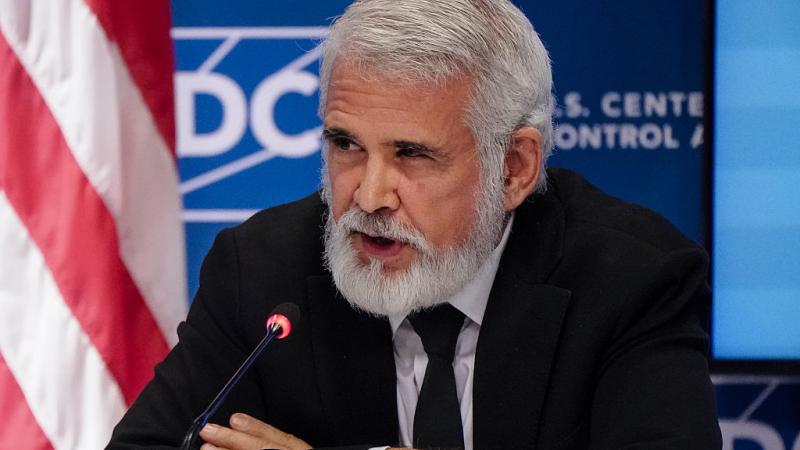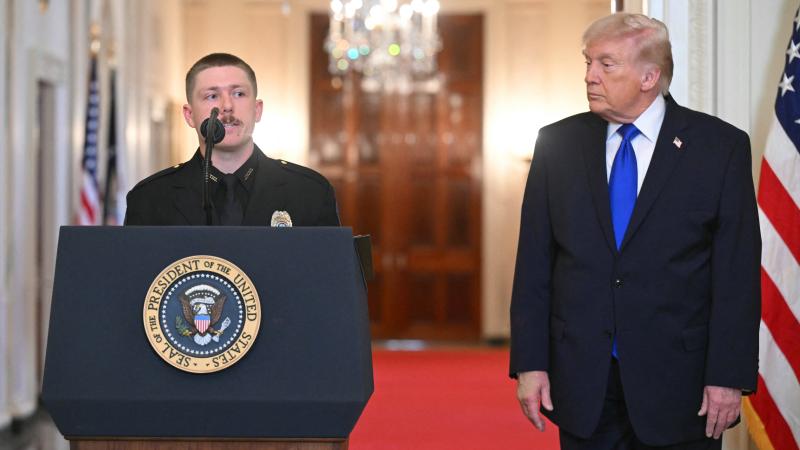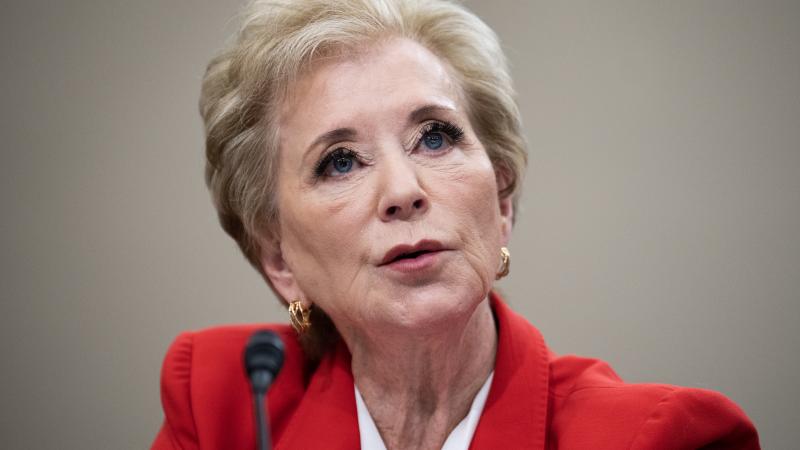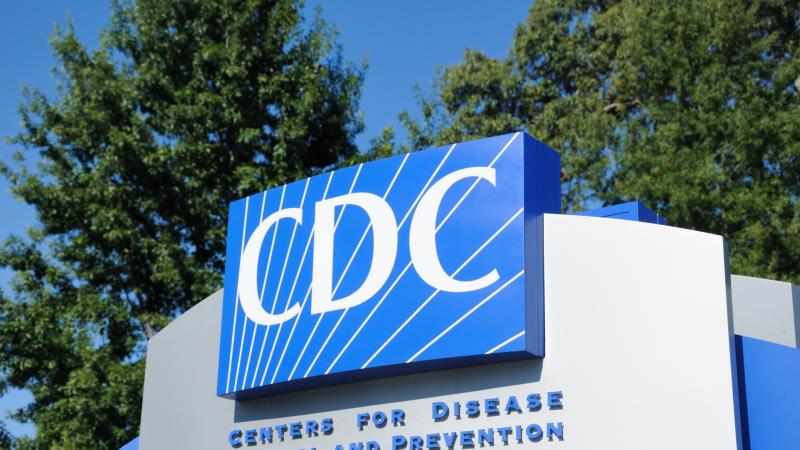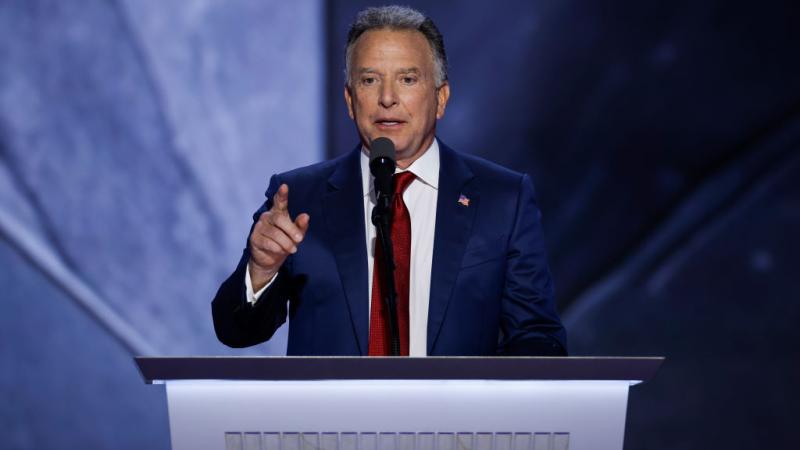Anti-Israel campus 'deplatforming' incidents spike as universities invoke 'safety' to censor
Incidents on pace to "shatter last year's record," FIRE says. UNLV sides with protesters against Israeli physicist, USC blames "federal regulators" for decision to cancel anti-Israel valedictorian's commencement speech.
The Israel-Hamas war that followed the terrorist group's Oct. 7 attack on civilians has prompted a record-breaking wave of deplatforming attempts on U.S. college campuses in 2024, even for events unrelated to the foreign conflict, according to tracking by a civil liberties group.
Nearly three times as many incidents were instigated "from the left," meaning anti-Israel, as "from the right," meaning pro-Israel, the Foundation for Individual Rights and Expression's Campus Deplatforming Database shows.
FIRE has tracked 67 attempts to disinvite or shut down speakers on all subjects through March 15, most occurring since the end of February.
"We are on pace for over 250 deplatforming attempts this year, a number that would shatter last year’s record of 157 deplatforming attempts," FIRE said in a Friday post on the database, which it updates "every few weeks" and covers incidents going back to 1998.
The trend is historically unusual because "it's not even disinvitation season yet," the group marveled, referring to each spring's demands from students, faculty, alumni and others to cancel newly announced commencement speakers based on their views.
Three in four 2024 incidents "involve a controversy over the Israeli-Palestinian conflict," as do 27 of the 30 attempts that involved "attempted disruption" or "a substantial event disruption," according to FIRE. Just the News couldn't find any disruptions from the right.
It tracked only 53 event disruptions last year, more "substantial" than "attempted," with 13 of them involving Israel-Palestine, most of those after Oct. 7.
Because FIRE tracks each incident by the speaker targeted, events with more than one speaker have a listing for each of them. They include a Stanford "fireside chat" about antisemitism with six speakers disrupted from the left, and a City University of New York panel discussion on "Globalizing the Intifada!" with four speakers canceled from the right.
Several 2024 anti-Israel deplatformings targeted speakers who were talking about other subjects, including black holes at the University of Nevada Las Vegas, "LGBTQ+ equity in medicine" at the University of Chicago, or just hosting an honors convocation, as happened to University of Michigan President Santa Ono last month.
UNLV police reportedly told Bar-Ilan University professor Asaf Peer, an Israeli, they couldn't remove protesters who constantly disrupted his presentation at the school's public physics symposium in apparent violation of campus policy, because of their First Amendment rights.
Police escorted Peer off campus against his will for his "safety" after pressuring organizers to end the event early, he said. UNLV spokesperson Francis McCabe told the Nevada Current the lecture was "open," the escort was a "precaution" and organizers simply "paused" the lecture, which Peer completed "virtually."
The incident recalls the Massachusetts Institute of Technology disinviting University of Chicago geophysicist Dorian Abbot from giving a prestigious lecture because of his unrelated opposition to mandatory diversity, equity and inclusion statements.
Most MIT faculty surveyed by FIRE opposed the disinvitation, and eight in 10 said either MIT would not defend controversial speech or they weren't sure if it would.
The University of Southern California also used the "safety" rationale this week to cancel its anti-Israel valedictorian Asna Tabassum's commencement speech, less than two weeks after honoring her at its ritzy Academic Honors Convocation, while passing the buck to the Department of Education for its decision.
Pro-Israel groups had demanded USC explain why it gave the honor to "someone who promotes antisemitic views," which is "disqualifying in and of itself."
They cited Tabassum's social media comments calling Zionism "a racist settler-colonial ideology" and saying the "complete abolishment" of the Israeli state is "the only way towards justice," which pro-Israel groups called "quite hypocritical" given Tabassum minored in "resistance to genocide."
Provost Andrew Guzman used the words "safe" or "safety" about 20 times in his Monday announcement, not including references to the school's Department of Public Safety.
Discussion of Tabassum's selection "has taken on an alarming tenor," extending outside the university community, "and has escalated to the point of creating substantial risks relating to security and disruption at commencement," Guzman wrote. "We cannot ignore the fact that similar risks have led to harassment and even violence at other campuses."
He implied that letting Tabassum speak could land USC in legal trouble or provoke a federal civil rights investigation, many of which followed allegations against universities tolerating antisemitism or Islamophobia after Oct. 7.
"This decision is not only necessary to maintain the safety of our campus and students, but is consistent with the fundamental legal obligation – including the expectations of federal regulators – that universities act to protect students and keep our campus community safe," Guzman said.
That explanation doesn't wash for FIRE, whose campus rights advocacy program officer Graham Piro told Just the News "the university has sent the wrong message to campus."
"Universities should only cancel events as a last resort in response to genuine security concerns, not as a knee-jerk reaction to expected controversy," he wrote in an email.
"Whenever a university cites vague, unspecified security concerns in cancelling an event, it raises concerns about pretext and viewpoint discrimination" that can only be overcome by demonstrating "why those security concerns could not have been sufficiently addressed," Piro said. It should not use safety obligations "as license to censor or cancel events."
Tabassum issued a statement questioning whether the decision was "made solely on the basis of safety," claiming that USC told her it "had the resources to take appropriate safety measures" but didn't like the "image" of increasing security at commencement
She's not aware of "any specific threats against me or the university," and USC denied her "request for the details underlying the university’s threat assessment."
The Council on American-Islamic Relations Greater Los Angeles Area Office doesn't think USC is playing it straight either and is running a campaign against the university to reinstate Tabassum's speech.
"USC cannot hide its cowardly decision behind a disingenuous concern for 'security,'" Executive Director Hussam Ayloush said. It has not only "empower[ed] voices of hate and censorship" but violated "USC’s obligation to protect its students," contrary to its stated rationale, he said.
USC didn't respond to queries to specify the "fundamental legal obligation" and "expectations of federal regulators" that allegedly prompted its decision.
The Facts Inside Our Reporter's Notebook
Links
- Campus Deplatforming Database
- FIRE said in a Friday post
- each spring's demands from students, faculty, alumni
- Stanford "fireside chat" about antisemitism
- City University of New York panel discussion on "Globalizing the Intifada!"
- black holes at the University of Nevada Las Vegas
- "LGBTQ+ equity in medicine" at the University of Chicago
- University of Michigan President Santa Ono
- UNLV police reportedly told
- campus policy
- Nevada Current
- Massachusetts Institute of Technology disinviting
- Most MIT faculty surveyed by FIRE opposed the disinvitation
- anti-Israel valedictorian Asna Tabassum
- Academic Honors Convocation
- Pro-Israel groups had demanded USC explain
- Provost Andrew Guzman used the words "safe" or "safety"
- allegations against universities tolerating antisemitism or Islamophobia
- Tabassum issued a statement
- campaign against the university to reinstate Tabassum's speech
- Executive Director Hussam Ayloush said

